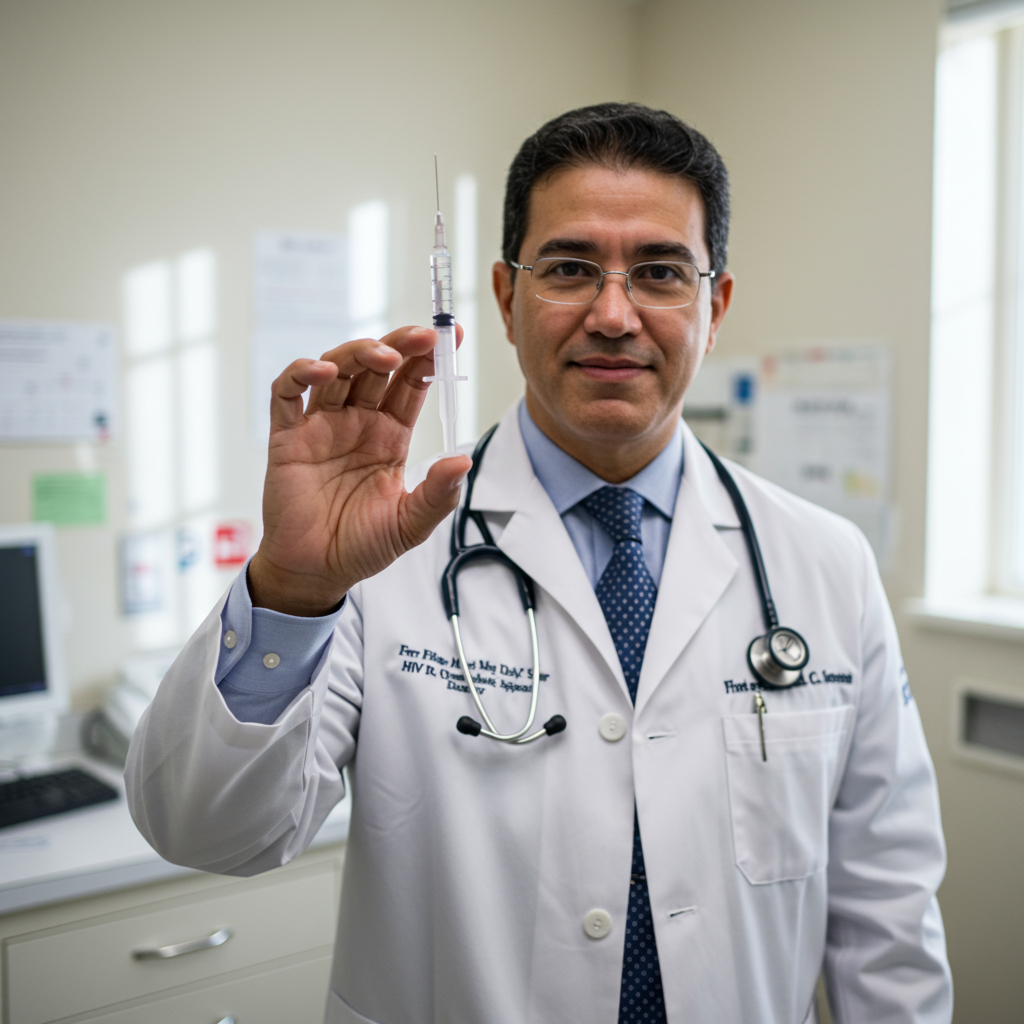A potentially revolutionary new tool has just been approved in the fight against HIV. The U.S. Food and Drug Administration (FDA) has given the green light to Yeztugo, an injectable drug designed to prevent HIV infection that needs to be administered only twice a year.
Developed by Gilead Sciences, Yeztugo (generic name lenacapavir) offers the longest-lasting preventative option currently available for HIV PrEP (pre-exposure prophylaxis). Previously, preventative options required daily pills or injections every two months.
How Does the Twice-Yearly Shot Work?
Unlike daily pills, Yeztugo is given as two injections under the skin, typically in the abdomen. This creates a “depot” of medication that is slowly absorbed into the body over a six-month period, providing continuous protection.
This infrequent dosing schedule is seen as a major advantage. For individuals at high risk of contracting HIV, remembering a daily pill or even a shot every two months can be challenging. A twice-yearly regimen simplifies the process significantly, allowing many to “forget that I’m on PrEP” compared to needing to carry pills or adhere to more frequent appointments. This convenience expands the opportunity for prevention for a wider range of people.
Proven Effectiveness in Clinical Trials
Clinical studies have demonstrated the remarkable efficacy of lenacapavir for PrEP. Data presented by Gilead from two studies showed that the shot nearly eliminated new infections.
One significant study involved over 5,300 sexually active young women and teen girls in South Africa and Uganda. Participants were randomized to receive either the twice-yearly lenacapavir shot or daily oral PrEP pills. Crucially, there were zero HIV infections observed in the group receiving the lenacapavir injection, whereas approximately 2% of the participants in the comparison group taking daily pills contracted HIV from infected partners. A second study showed the twice-yearly shot was also highly effective in populations of gay men and gender-nonconforming individuals in the U.S. and other countries heavily impacted by HIV.
It’s important to note that Yeztugo is for individuals who test negative for HIV before starting the treatment. It works specifically to prevent HIV transmission and does not offer protection against other sexually transmitted diseases.
Potential to Curb the HIV Epidemic
Despite the availability of effective prevention tools like PrEP, HIV remains a significant public health challenge globally and in the United States. There are still an estimated 30,000 new HIV infections annually in the U.S. and about 1.3 million worldwide. Worryingly, only around 400,000 Americans currently use some form of PrEP, a fraction of those who could benefit. Studies indicate that states with higher rates of PrEP use have experienced a decrease in new HIV infections, while rates have continued to rise elsewhere.
Experts and advocates view the new long-acting shot as having immense potential to impact these numbers. Its convenience could improve adherence and uptake, reaching individuals who find current options difficult to maintain. It also offers a discreet prevention method, which is particularly valuable for many, including women, who account for about half of new infections and may need prevention tools they can use without a partner’s knowledge or consent.
Challenges: Cost and Accessibility
While the scientific promise is high, concerns about the cost and accessibility of Yeztugo remain. Gilead has set the U.S. list price for the annual dosage at $28,218 before insurance. The company states this is comparable to the cost of some other PrEP options and anticipates insurance coverage, along with offering financial assistance programs. However, navigating insurance and potential out-of-pocket costs could still be a barrier for some.
Ensuring global access, particularly in high-burden regions like Africa, Southeast Asia, and the Caribbean, is also crucial. Gilead has announced agreements with generic drug manufacturers to produce low-cost versions for 120 countries. However, delivering these life-saving medications requires robust healthcare systems, consistent funding, and the ability to ensure individuals receive both necessary shots each year – challenges exacerbated by recent cuts to global health funding in many areas.
Furthermore, while generally well-tolerated, injection-site pain is a potential side effect noted in trials, though researchers advise that cold packs can help manage it.
A Powerful New Tool with Hurdles to Overcome
The FDA approval of the twice-yearly lenacapavir shot is undoubtedly a significant step forward, providing a highly effective and uniquely convenient option for HIV prevention. Its potential to expand PrEP access, improve adherence, and help end HIV transmission is enormous. However, realizing this potential hinges on overcoming the significant barriers of cost and ensuring widespread, equitable access globally. It’s a powerful new tool in the arsenal, but its ultimate impact will depend on our ability to get it into the hands (and arms) of those who need it most.




